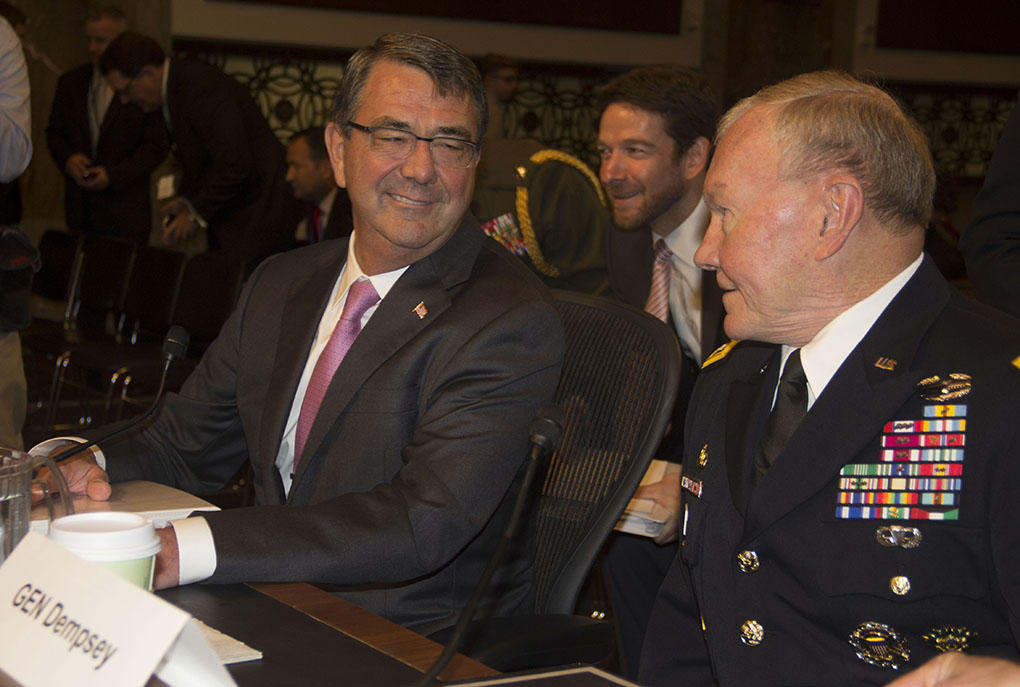One of the biggest pushes in education today is to give students more access and exposure to new technologies. Schools all across the country are advocating for curricula that encourage teachers to incorporate Smart Boards, computers, iPads and even students’ own smartphones into daily lessons in schools.
Many schools are even providing every student who enrolls at a school with one. While there are obviously endless benefits of cultivating a technologically literate generation, this one-to-one approach to technology has some major drawbacks, critics say – especially when the students take these devices home with them.
Out from under the watchful eye of a school’s Wi-Fi, which usually restricts what websites are accessible, students have unlimited access to the worldwide web. This means that we are potentially handing out students a tool for bullying, for looking up pornography, for illegally purchasing guns or drugs, and for communicating with terrorist organizations like ISIS. The group has a strong presence on social media and frequently uses Twitter to recruit new members. There are about 46,000 active ISIS supporters on Twitter, according to the most recent figures from the FBI.
Sara Rubin, a psychologist at John Hersey High School in Arlington Heights, Illinois, worries what students are doing with these devices.
“Twitter and Facebook use is easier to monitor at school. However, the students take those iPads home with them and theoretically can use them all night if they wanted,” she said in a phone interview.
Rubin also said parents often find it difficult to monitor how their children use these devices at home.
Experts have found that there is no specific profile for potential ISIS recruits through social media.
In October of last year, three Denver teenage girls were caught attempting to run away to Syria to join ISIS. In November, a 20-year-old college student at the University of Alabama at Birmingham successfully traveled to Syria to join the movement. These young people are among more than 150 U.S. citizens who have attempted to join ISIS, according to the Office of the Director of National Intelligence. Worldwide, more than 3,400 people from western countries are now ISIS fighters, CNN reported in February.
David Gartenstein-Ross, a counterterrorism expert at the Foundation for Defense of Democracies, told the Senate committee on Homeland Security and Governmental Affairs that it’s difficult to profile exactly the type of person who is likely to sympathize with or join ISIS. Some have criminal backgrounds, while others are educated. “There is no one-size-fits all,” he said.
The parents of all four young people reported that they later found communication between their children and ISIS members on their children’s social media accounts. Ah, okay. A definitive link. Might be worth mentioning higher.
One thing all ISIS recruits do have in common is that they like the message ISIS puts forth. “ISSI is excellent at messaging,” Gartenstein-Ross said. “They have a winner’s messaging. They project strength.”
Rubin believes that this message could be especially appealing to young teenagers.
“Terrorist organizations’ effectiveness at recruiting this population is in part because of how much time teens are spending online without adult supervision,” she said. “It’s also because the message from these organizations is really resonating with teens who are looking to be a part of something bigger and form their identities. Their message is very enticing and warm when you feel isolated from your peers and are trying to form both your personal identity and peer group over the Internet.”
Senator Ron Johnson (R.-Wisc.), chair of the Senate Committee on Homeland Security and Governmental Affairs, has called for more aggressive solutions to this growing problem.
“In order to understand the nature of the current threat to America, it is important to understand these changing recruitment methods and the challenges they pose,” he said.
Rubin thinks that better education on Internet safety for students could help illustrate for them how ISIS manipulates them in its messaging.
Gartenstein-Ross also believes that debunking ISIS’s messaging is also part of the solution. In order hamper the effectiveness of ISIS, the U.S. needs to begin attacking the group’s persona of strength, which it too can do through social media. “The U.S. may not be the best voice to deliver this message,” Gartenstein-Ross said. “But it can provide the media with reliable information that it can use to show when and where ISIS is failing.”
In the meantime, Rubin urges schools and parents to better supervise students’ use of technology. “It’s a school issue, but it’s also a parental issue and parents need to do a better job of supervising their kids.”
Parents and schools have begun taking a more proactive approach to combatting bullying in schools and online. Consideration of this new potential threat to kids’ safety and well-being is long overdue. Blindly handing technology to kids without first educating them on the dangers that exist on the Internet is irresponsible. We’ve taught them about predators on the street and to be vigilant in real life, but as more and more of our time is spent online and on social media, we need to start educating kids on the dangers that exist on these platforms.




![Chris Voss is the founder and CEO of the Black Swan Group. “There are few people that have worked for the [U.S.] government that know as much about international kidnapping as I do,” he said. (Photo courtesy of the Black Swan Group)](../../../wp-content/uploads/2015/06/ChrisVoss-blueshirt-small.jpg)




